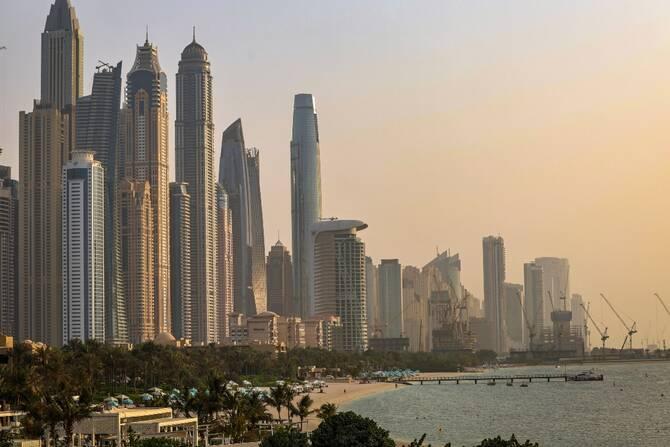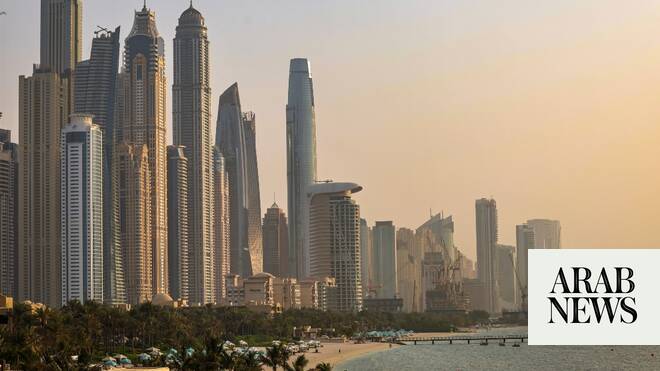UAE Amplifies Gold Reserves Amid Global Economic Turbulence, Aiming for Financial Resilience




Gold Rush in the Gulf: UAE's Strategic Reserve Expansion in 2025
The UAE's enthusiasm for gold represents a calculated response to unprecedented global uncertainty. With world events prompting widespread economic caution, the Central Bank of the UAE has dramatically increased its gold reserves by nearly 26% in the first five months of 2025. These holdings, now valued at $7.9 billion, showcase the country's strategic positioning amidst chaotic global circumstances and mounting geopolitical tensions.
This golden accumulation aligns perfectly with a worldwide pattern where central banks are steadily amassing precious metal reserves amid rising inflation and geopolitical risks. The rise from $6.255 billion at the close of 2024 marks a noteworthy escalation, echoing a global embrace of gold as the ultimate financial safeguard. The World Gold Council reports that central banks have been consistent net buyers for over a decade, with more than 95% of reserve managers anticipating further increases in their gold holdings through the next year.
International gold prices have leaped approximately 33% year-to-date, touching historic highs of over $3,500 per ounce, creating ripple effects across global markets. In Dubai, 22-karat gold recently surged to 391.25 dirhams per gram, approaching the significant 400-dirham benchmark that market watchers have been monitoring closely. Financial experts acknowledge this price movement as a natural hedge against fluctuating currencies, interest rate volatility, and broader economic uncertainty that has characterized the global financial landscape.
The UAE's substantial boost in gold reserves represents far more than a reactive measure to global financial messiness; it constitutes a comprehensive move towards sophisticated financial diversification. Market strategist Noureldeen Al-Hammoury describes this approach as a classic insurance strategy designed to provide stability amid uncertain economic cycles. This strategic positioning extends beyond mere gold accumulation, reflecting broader preparedness for whatever economic challenges may emerge in an increasingly unpredictable global environment.
The UAE has ascended to rank as the world's second-largest gold trading hub, a remarkable achievement that has even surpassed the United Kingdom's traditional position. In 2023 alone, the nation processed an astounding $129 billion in gold trade transactions, establishing itself as a formidable force in global precious metals markets. This positioning on the international stage significantly enhances the UAE's potential to influence institutional investment behaviors, with financial experts predicting increased capital flows into gold-linked assets and related investment vehicles.
Gold serves not only as a financial hedge but also functions as a powerful confidence signal in uncertain times. Central bank gold purchases bolster overall investment confidence while simultaneously supporting a broader global trend towards de-dollarization strategies. As economies worldwide seek greater independence from US dollar dependency, the UAE's comprehensive gold strategy reflects both prudent risk management and remarkable foresight in anticipating future monetary policy shifts that may reshape international financial relationships.
While the precise pace of the UAE's future gold acquisitions remains subject to speculation and market conditions, it has become increasingly clear that this initiative represents part of a carefully crafted long-term strategy designed to build economic resilience. As macroeconomic winds continue to shift unpredictably across global markets, the strategies governing future reserve compositions will likely evolve accordingly, with gold maintaining its central role in ensuring financial stability through turbulent periods.
The UAE's transformation into a major gold trading center creates significant implications for regional investment patterns and institutional behavior. Investment firm Lighthouse Canton predicts that this strategic positioning will guide substantially more capital into gold-linked investment avenues, potentially reshaping how regional financial institutions approach portfolio diversification and risk management strategies in an era of heightened global uncertainty.
The narrative surrounding gold continues to evolve as both an elegant store of historical value and a promising foundation for future financial stability. Though the exact trajectory of reserve expansion remains uncertain, gold's fundamental role as a fortress of financial security appears undeniable. Its enduring radiance provides steady guidance as stakeholders navigate increasingly complex seas of economic and political uncertainty, making strategic gold accumulation an essential component of modern central banking practices.
As global conflicts persist and currency volatility remains elevated, the UAE's proactive approach to gold reserve management demonstrates calculated preparation for potential economic upheavals. This positioning showcases gold not merely as a tangible asset but as a sophisticated strategic policy instrument capable of providing stability amid continuing global uncertainties and evolving international monetary dynamics.

Comments